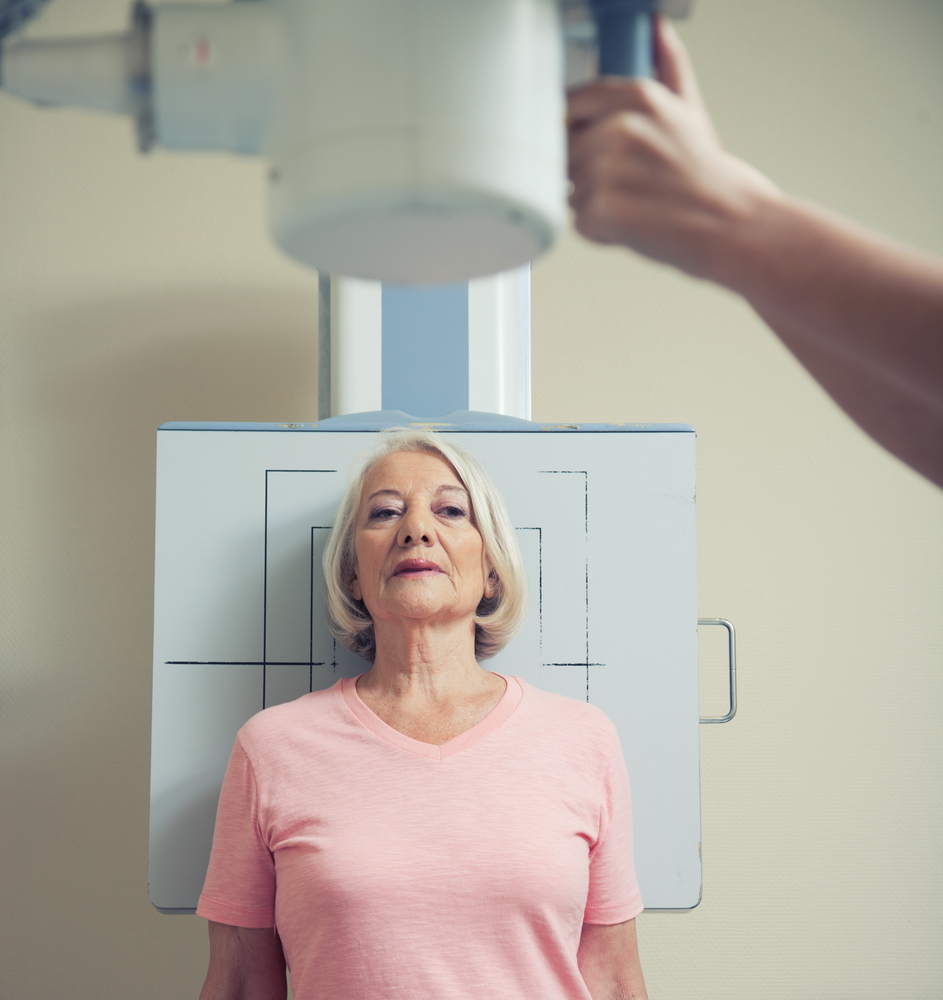In a new study entitled “Radiation-induced bronchiolitis obliterates organizing pneumonia (BOOP) syndrome in breast cancer patients is associated with age,“ authors evaluate the incidence and risk factors among breast cancer patients receiving radiation therapy for developing radiation-induced bronchiolitis obliterans organizing pneumonia (BOOP). They found older age breast cancer patients are at higher risks for developing the syndrome and should be monitored carefully. The study was published in the journal Radiation Oncology.
Patients with breast cancer are often treated with radiation therapy (RT). This includes patients who received breast conserving surgery (BCS) — an operation to remove the breast cancer but not the breast itself, a less radical cancer surgery than mastectomy — or those who underwent mastectomy surgery (surgical removal of one or both breasts, partially or completely) and received post-mastectomy radiation therapy (PMRT). While early breast cancers are managed with RT following BCS, those at more advanced stages usually require PMRT. Notably, both radiation methods significantly improve patients’ survival rates within 10 and more years following surgery.
Bronchiolitis obliterans organizing pneumonia (BOOP) is a lung disorder associated with “organizing pneumonia,” and is characterized by symptoms of cough, fever and dyspnea with malaise. In RT treated patients, several months of therapy were reported to induce a radiation-induced BOOP (RT-BOOP) syndrome. However, the risk factors associated with RT-BOOP are currently ill defined.
In this study, authors performed a retrospective analysis of 1,176 breast cancer patients treated with RT after BCS or PMRT at the Cancer Institute Hospital, The Japanese Foundation for Cancer Research to determine both incidence and risk factors for RT-BOOP associated with radiation therapy (RT). To this end, they performed routine chest radiographs during at least 12 months after surgery.
[adrotate group=”3″]
The team diagnosed RT-BOOP syndrome only in 16 patients (1.4%), specifically 12 patients submitted to BCS and 4 patients to PMRT. Additionally, they observed that neither type of treatment (BCS or PMRT) associated with RT-BOOP syndrome in the patients’ population analyzed. They identified age, and to a lesser extent smoking, as significant factors associated with RT-induced BOOP syndrome, however the latter needs supporting data from studies using larger databases.
In conclusion, the authors highlight that RT-BOOP syndrome is a rare event observed in RT patients, either those submitted to BCT or PMRT. Since older age was identified as the most important factor for the prediction of RT-BOOP syndrome in breast cancer patients who receive RT, the team suggests older patients should receive particular attention to diagnose, as early as possible, RT-BOOP syndrome.

